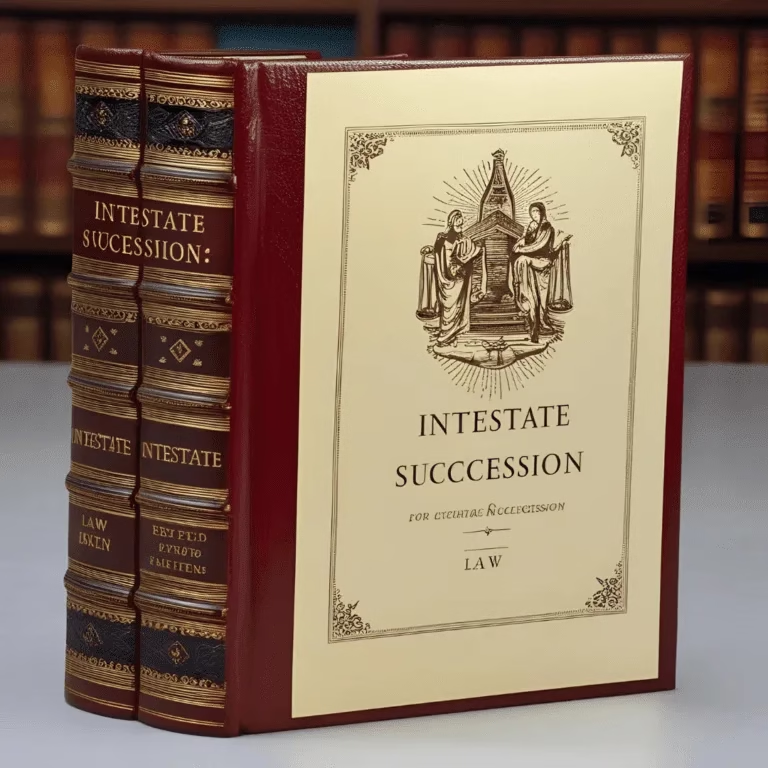
In Kenya, a will can make or break your legacy. It’s not just a document—it’s your voice after death, your final act of care, your plan for your family’s future. But here’s the catch: if your will isn’t legally valid under Kenyan law, any interested party can challenge it in court and if convinced, the court can throw it out. That means your property may not go where you intended, and your loved ones could face legal battles and emotional stress.
In this comprehensive guide, we break down what makes your will valid under Kenyan law, the essential legal requirements, and the smartest steps you can take to secure your legacy.
What Is a Will in Kenya?
A will is a legal document where a person—known as the testator—declares their wishes on the distribution of their estate (property, money, land, possessions) upon their death. The testator may also appoint executors to manage the estate, guardians for minor children, and provide directions for funeral arrangements.
But just writing down your wishes isn’t enough. Kenyan law sets strict conditions that must be met for a will to be recognized as valid.
The Law That Governs Wills in Kenya
The Law of Succession Act (Cap 160) of Kenya has set down parameters for establishing whether or not a will is valid. This law outlines:
- Who can make a will
- How it to write and sign a will
- The involvement of witnesses in writing and signing a will
- What constitutes a valid or void will
- What happens if someone dies without a valid will (intestate succession)
Six Legal Requirements for a Valid Will in Kenya
To be legally binding on the testator, a will in Kenya must meet all of the following conditions:
1. The Testator Must Have Legal Capacity
The person making the will must:
- Be 18 years or older
- Be of sound mind at the time of writing the will
- Fully understand the implications of making a will
2. The Will Must Be in Writing
- It is highly advisable that a will be in writing—either typed or handwritten.
- Oral wills (spoken wills) are only valid under exceptional circumstances, such as during a last illness or near death, and only for three months unless the person dies within that period.
3. The Testator Must Sign the Will
- The must personally sign the will or expressly authorize another to sign it on the testator’s behalf and in the presence of the testator.
- The signature shows that the testator approves the contents and intentions expressed in the document.
4. Two or More Competent Adults Must Witness the Will
- The law requires that at least two witnesses sign the will.
- Witnesses must:
- Be present at the same time when the testator signs
- Sign in the presence of the testator
- Witnesses should not be beneficiaries in the will, as this can raise conflict of interest and potentially invalidate their inheritance.
5. The Testator Must Make the Will Voluntarily
The testator must make their will on their own will, without,
- Duress
- Fraud
- Undue influence
- External pressure from family or third parties
A will made under pressure can be declared null and void in court.
6. The Testator Must Not Have Revoked the Will
- A will can be revoked either by making a new will or by physical destruction.
- The most recent valid will is the one that stands.
- Marriages can also automatically revoke a will unless it was made in contemplation of that marriage.
Common Mistakes That Invalidate Wills in Kenya
Even a small error can render a will unenforceable. Here are the most common pitfalls:
- Missing witness signatures
- Beneficiaries acting as witnesses
- Improper storage (lost, damaged, or inaccessible wills)
- Use of vague or contradictory language
- Failure to account for all dependants or properties
The result? Family disputes, court battles, and possible application of intestate succession laws, which may go against your wishes.
How to Safeguard Your Will and Legacy
Here’s how to ensure your will is legally valid and safely stored:
- Engage a qualified succession lawyer to draft or review your will
- Clearly list all your assets and beneficiaries
- Keep your will in a secure but accessible location (lawyer’s office, safe deposit box, etc.)
- Update your will regularly to reflect life changes—marriage, children, divorce, asset purchases, etc.
- Let your executor or trusted family member know where the will is stored
Why Having a Valid Will Matters
Creating a valid will in Kenya is not just a legal formality—it’s a powerful act of responsibility and love.
- Avoid family feuds
- Ensure children and dependants are cared for
- Protect your spouse and blended families
- Prevent state-imposed distribution of your estate
- Speed up probate and asset transfer
Final Word: Your Will, Your Legacy
A will is your final message to the world. Don’t let it be lost in translation—or invalidated by the court. By understanding what makes your will valid under Kenyan law, you take control of your estate, protect your loved ones, and preserve your legacy with dignity and clarity.
Need Help Looking at Your Will? Want to Draft a Legally Compliant Will?
Contact us today for expert advice and assistance on matters drafting a will!
Disclaimer!
This article provides general information for educational purposes only and should not be construed as legal advice.













